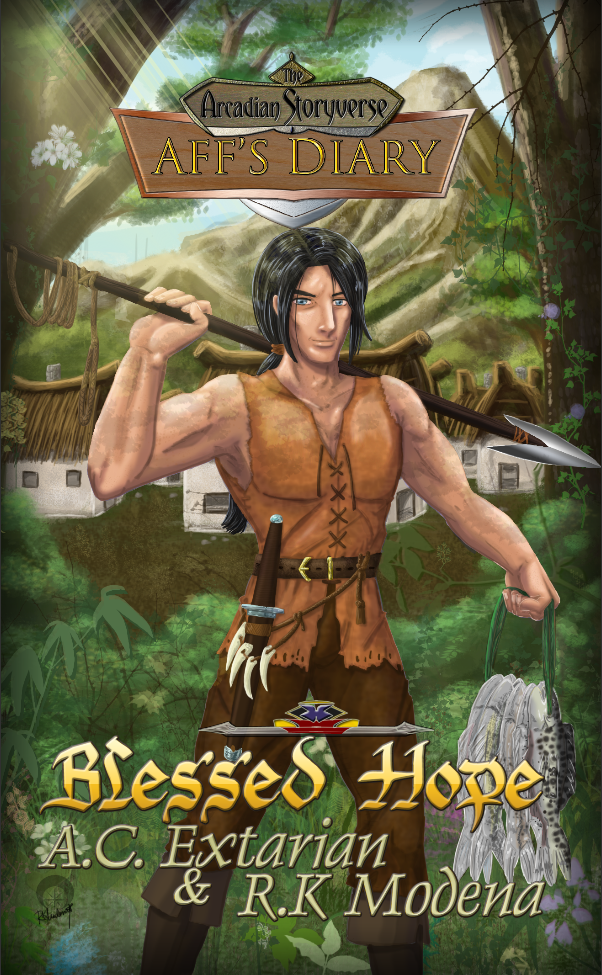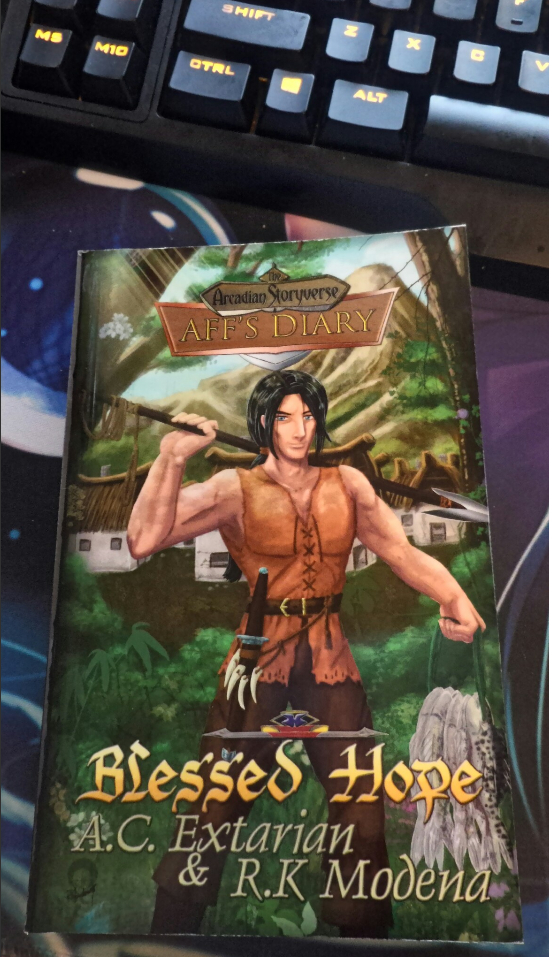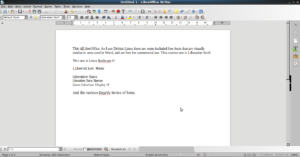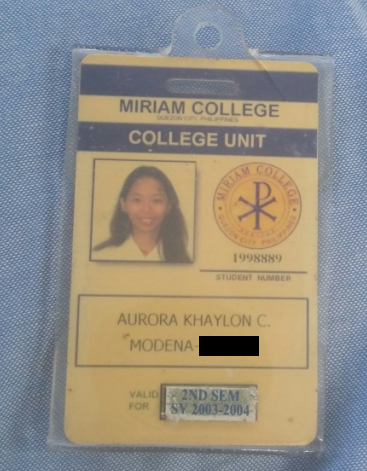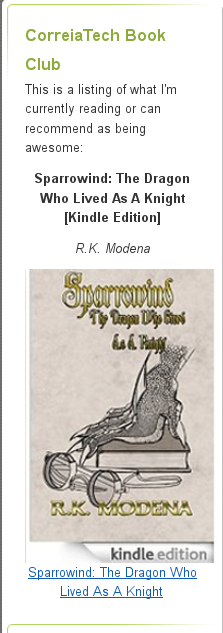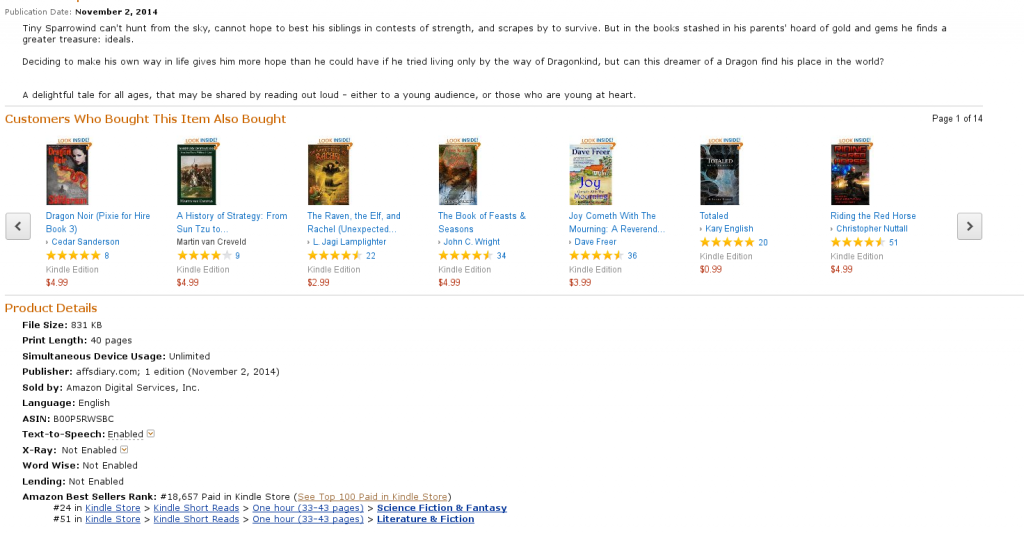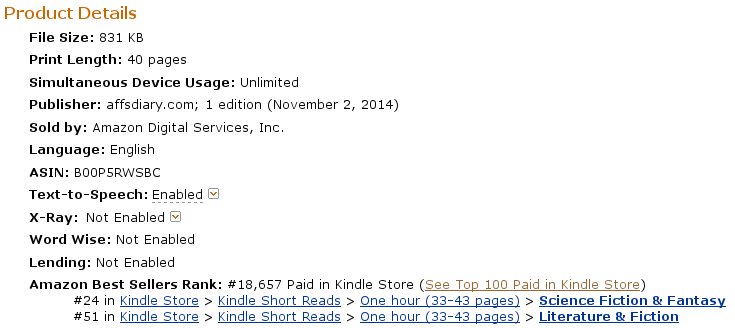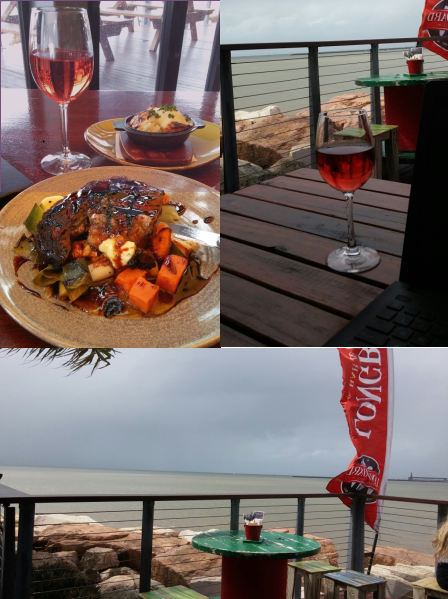Message from the site wizard: There is an excessive amount of errors on the local login system that looks like people trying to log into the local (here only) account with their remote (WordPress) account.
Please ensure you have clicked ‘Login with WordPress’ on the login form before attempting to use WordPress login credentials.
If you are having serious issues, send an e-mail to [email protected] with ‘Shadowdancer WordPress’ in the subject line and I’ll figure out what’s wrong.
If you don’t have a WP account, please direct any comments to this post at the Affsdiary Forums.
I apologize for the inconvenience.
Also: I’ve been Instalanched?! (Hi!) AND Larry Correia linked this?! faints!
======
I haven’t really written about the Sad Puppies 3 campaign on my blog because when it really started to heat up, my two and a half month old son Brandon died of SIDs. After that, I kind of wanted to keep my little space on the Internet off that kind of harassment, like what I saw levelled at Brad Torgersen – for a while. Nevertheless, I openly support Sad Puppies 3, because I honestly saw it as a chance to vote for the Hugos, as a fan of Sci-Fi and Fantasy, to see try vote for books I felt was worthy, honestly.
I can’t any more.
I’m just a small (literally – I’m only 4’8″) indie author and artist. So most people will probably dismiss me as unimportant. Most people don’t know who I am, and that’s okay.
The problem is when you don’t know who you’re talking about, or yelling insults at, you don’t know anything about them, where they’ve been, what they have done.
You don’t know what stories they have.
This will be long, so brace yourself.
A bit of background about myself first, which I don’t really wave around much.
My family’s always been a politically active one. My father, the son of two poor teachers was a police beat, later investigative journalist during the Marcos Era, and he openly didn’t approve of the abuses being conducted at the time by the dictatorship and its cronies. I don’t think most people who read this will really get it unless they’ve lived under similar circumstances, but that pretty much was walking around with a big fat target on your back. Not the bullshit social media kind that is common these days, but the kind that actually gets you hit with bullets. Journalists disappearing wasn’t uncommon, and most of those who did disappear were never seen again. If the family was lucky, they’d find something to bury and mourn – my parents related that a belt buckle in a shallow grave in the jungle was all that was found of one of my father’s journalist friends years after he’d vanished. One of the ones who made it out alive refused to talk about the years he was gone and missing.
For whatever reason, Dad didn’t vanish, nor was he openly assassinated, even with critical columns when he was an editor. He was a bit too visible perhaps – at his funeral, one of his longtime friends described Dad as a noisy bantam rooster, kicking up a fuss when it was warranted. (Another described him as being so restless and excitable that he would often be like a headless chicken rushing about, or so his senior editor would yell.) He taught me that there’s a story to be told if you know how to find it – and he was very good finding stories and bringing them to light. Have an article written by another one of his friends which some examples; which, surprisingly, has comments from myself, AND Uncle Larry Sipin’s daughter. Larry Sipin and my father were best of friends, and when Tito Larry died, he grieved for years. When my father died, his former colleagues in journalism wondered who they would first pester for an interview when they got to Heaven.
Dad was also a union leader, back when such a title actually meant something, looking out for worker’s rights and safety. One day, when I was on my way to college, I put on my school ID – it clipped to my blouse pocket. An old man sitting across from me in the Tamaraw FX taxi (these functioned more like jeepneys, plying set routes) saw my surname and asked if I was related in any way to Antonio Modena. Surprised, I replied that he was my Dad.

The old man then said “Ah, a man of great principles, your father. When he was the leader of our union at the newspaper I worked at, he looked out for us, the workers lower on the ladder – the cafeteria workers, the janitors, the people running the print machines, the security guards. When one of us lost his fingers in a printing machine accident, your father was able to fight for our employer to pay for the medical bills and give the man accident compensation and a pension. His children didn’t have to drop out of school to work.
“He never sold us out, you know. I heard they tried to bribe him, two million pesos and immigration to the US and a job, and he turned them down. A man of great, solid principles, your father. Be proud of him.”
Needless to say, his principles and unwillingness to bow to fear earned him enemies, including one of the relatives of Imelda Marcos. When Dad refused to accept that bribe, he found himself sacked on Christmas Eve that same year. There’s lots more to that story, but at any rate, he was encouraged to take the Foreign Service Officer exam. Out of two or three thousand, only six passed. Dad was number four, I think.
The relative of Imelda, we heard later on, was quite unhappy and tried to get Marcos himself to keep my father out of the foreign service. Supposedly, Marcos told him that because my father had passed the exam, there was nothing he could do.
My father’s first assignment was to East Berlin. A World War II history buff, he was excited because this meant that he could go and live in a place he had only read so much about. I was seven when we got there, and for two years we lived under in a socialist country. Privacy was an illusion, quite honestly; and my parents knew that there would be listening devices, and that our house would be inspected while we were out of the house. It would be little things – cups just out of place, neckties and suits not in the same order that my Dad carefully arranged, our toys moved from their original positions. There had been no housing in the diplomatic quarter, so we lived in an apartment high-rise where the families of the Stazi were granted homes. Dad was happy – we got to live Socialist East Berlin unfiltered and uncurated.
But to get to East Germany, we first flew to Amsterdam. And while we were there, Dad took us kids to the Anne Frank House museum. That started my education in history. Dad felt it very important that we learn about it before we got to Berlin, because once we were there, there would be no mention of it. This was particularly emphasized by the fact that the Second World War was excised entirely from East German education at the time, and they were only taught about ‘The Great War’ – what the rest of the world was calling World War I. Socialist Germany was a big exercise in erasing the past and reconstructing it in a great big lie – and somewhat inconveniently, there were still people who remembered WWII. It was a verboten subject, and the younger generation knew nothing of it. They didn’t believe that someone as evil as Hitler could have ever existed.
Dad, the Aristotlean gadfly that he was, liked to smuggle in copies of Mein Kampf and give it away as gifts, his own little subversive fight for the truth. I know he horrified one of our babysitters with it, who was a college student and an avowed Marxist who enjoyed being able to pit wills and philosophical arguments with ‘someone unfortunate enough not to be educated in Socialist education.’ It was her awakening into questioning what she knew.
One of the people working at the consulate fell in love with an East German woman. The only way they could marry was if she escaped East Berlin, and so he smuggled her out. The details of that I don’t know, but I remember my dad saying she was struck dumb for three days from sheer culture shock after she saw West Berlin for the first time – and realized that everything she’d been raised to believe, and had known as truth was in fact a carefully manufactured and maintained lie that was possible only through total control of information. Everything had to be spoon fed. They had to develop a disdain, to instil contempt, pity and aversion to Capitalism, America and other countries on the other side of the Iron Curtain.
It was actually the control of information that the older people tended to rebel against – the younger generations knew nothing of that, of course, because they did not know about the reality of the past. But the older people hungered for news, information. So we’d often get invited out to houses outside the city, where there were big, sprawling gardens. While my brothers and I played, my parents would be discreetly grilled for information and news about the outside world. They had no interest in leaving the Socialist setup, but would have liked to have the freedom to make up their own minds about the information out there, as well as events. They didn’t like being treated like children who were unable to think for themselves, or thought of as not having that capacity. They also wanted to just be able to travel and see their family on the other side.
The other thing they didn’t like what that good manners, right conduct and personal responsibility for one’s actions was no longer taught, and was considered ‘old fashioned’ and ‘wrong.’ Basic decency was being slowly erased, and the younger generations sind nicht mehr so nett. (no longer as nice.)
These seem like such a small things, I’m sure, to those of you reading this now, but the truth is, lots of little things eventually pile up, and become bigger than expected. We were reassigned to West Germany after only two years, but those two years still have an impact on me.
I was the only Asian student, and an ‘unknown’ Asian at that, in my classes in East Germany – most of my classmates had never heard of the Philippines; for the most part, they had heard of China, a sister nation in Communism. The years that followed in Bonn exposed me to the kind of racism I only had read about, but hadn’t experienced. See, my parents raised me to believe that I am a worthy human being, that my sex and skin color didn’t matter, and that it was my personality, my skills, my mind that mattered, that had merit, in the teachings of Martin Luther King Jr. who is one of the figures of history we look up to. So I was surprised to find myself getting bullied because I was seen as ‘less’ because I came from a ‘dirty Asian country.’
And since I’m my father’s daughter, I got into a lot of fistfights. I got accused of a lot of falsehoods too, including supposedly trying to throw a teacher down a stairwell, with ‘lots of witnesses’ lined up against me. My father asked that the person I supposedly tried to murder be brought into the room. So they did, and the teacher in question was surprised. “She saved my life, because she kept me from falling over the railing when the lunchtime rush caught us both.”
The teachers, trying to save face, tried to tell my father that I was disliked because I was ‘abnormal’, preferring to read (Anne McCaffrey’s Dragonriders of Pern, at the time) over playing during recess. My father jerked his thumb at the other children and said, “No, they are.”
In time though, the fights from my fellow schoolmates dribbled away as they decided I ‘wasn’t as weak and as cowardly as the other Asians’ – just in time for me to get into a fight with several teenagers from the high school who had heard of the uppity Asian girl who didn’t bow to her superiors. The same kids I used to get into a punchup with were right there with me and fighting back, and telling the teen boys that I was ‘stronger’ than the ‘rest of the weaklings.’
I remember trooping back to my house, the whole lot of us cleaning the scrapes and cuts and bandaging them up, and my mother, baby brother and the nanny coming home to see a crowd of Turkish, Iraqi, Iranian, African and German kids with cuts and bruises eating pizza at the dinner table. My mom’s only response was to send the nanny back out for more pizza and coke and for more band-aids. My house became the preferred place to hang out at after that, which my father said was fine because at least if we were there, we weren’t out in the streets getting into fights. I didn’t get into more fights after that, since word seemed to spread.
We moved around a bit after that, staying in the US with relatives for a few months, then going back to the Philippines, where I endured a different kind of discrimination – our household had always been English speaking, and the California sun had lightened my hair to a reddish brown, something I myself didn’t notice but my schoolmates did. Worse, I didn’t know how to speak Filipino, my English had a notable German mode of pronunciation, and the repeated syllables of Filipino, as well as it’s tonal inflections greatly eluded me. I was treated outright as an outsider, because I’d ‘lived abroad’ – seen as one of a different class of privilege and ‘snobbishness’ that I actually didn’t have (despite my father’s job and social standing, we were financially middle class.) The Philippines had changed a lot in the time we’d been gone, and I have to admit that the whole concept of envy of social and financial circumstances had been something I didn’t understand. It made less sense to me than racism, because it was something you could change with your own two hands!
My Dad got an assignment to Paris, France, as the Embassy’s minister counsellor, for six years. Because I was of college age, my mother and I stayed in the Philippines (though I stayed there for a year) and my brothers and father lived in France. When that tour was over, they came back home, and after a couple of years Dad took the panel examinations to qualify to become an Ambassador. He passed (not easy to do), was assigned to the ASEAN division of the Department of Foreign Affairs for a while, then he was up for assignment. He three options, one of which was open an embassy in Ireland (I think?) an assignment… I think the Maldives, and Israel.
I came down from upstairs to get a cup of coffee (that which sets my mind in motion…) and he was sitting at the dinner table, pondering what to take. He asked my opinion.
I said, “Ireland would be interesting. But Dad? You’re the kind of guy who thrives on stress. Israel’s better for you! Besides, that’s the land of the Bible! Think of all the history! And besides, it’s the only place in the Middle East where you won’t go insane from all the human rights violations and discrimination you’d be able to do nothing about.”
He chuckled and said I was right.
Now I mentioned before that my family is very political; and while Dad admired the Jews, he and my mother disagreed on the Israel-Palestine history. He felt that the Palestinians were the victims against a better set up aggressor – essentially buying the long-running media narrative. My mom on the other hand, curious about the Jews, studied the history, and took Israel’s side. It was, my mother and I felt, Dad’s blind spot; but he was also honest enough and objective enough that in the terms of comparison, Israel was the best place in the Middle East to be if you didn’t want to be in trouble for having different beliefs and religions.
Within five months of his arrival in Israel as our Ambassador and representative of the nation, Dad changed his decades-long opinion about the Palestinians, and sided with Israel. During a brief visit back we asked him why. Frankly, we were shocked; the Israel-Palestine situation had been an on and off debate with my parents, and we’d figured Dad was firmly entrenched in his view.
“It was all a lie,” he said. “Everything that I thought had been true of the Palestinians, is a lie. They fire rockets from hospitals and schools and houses, aiming at the Israeli schools, hospitals and houses, not military targets, and then run to the media and complain about how their civilians died in retaliatory fire. It’s stupid that they act like they’re the victims.” What broke the straw on the proverbial camel’s back though, was seeing the thrice a week caravans of food, supplies, necessities for living in food aid going across the border, funded by the Israeli government
He was also furious that any land the Palestinians got, ‘they turned into a wasteland’ – Gaza, Bethlehem… Gaza had been a fertile stretch of orchards and farmland when the Israelis surrendered it. Bethlehem, with it’s deeply religious significance, had been a thriving center for tourism and pilgrimages, but under the Palestinians, ‘it had become a slum.’ He saw the pictures of what these places looked like while under the care of the Jews and Israelis. Under the Palestinians, those places were ruined.
This isn’t to say he became unable to judge between right and wrong – barely a year into his ambassadorial duties, he called my mother, saying that he was likely to endanger his career, and told her why. She supported him and told him to do what he believed was right.
Now, I know in the light of the current controversy, which I will address later, this may sound hypocritical, but it isn’t – only those who are incapable of reading comprehension will take it wrongly.
My Dad, you see, had witnessed and been subject to very rough treatment by the Israeli Immigration Police. I know the general populace will go ‘so what?’ but there’s a culture of proper diplomatic protocol expected from the host country – and the IIP were violating it. Worse than that however, were the reports brought to him in his capacity as Ambassador of how the Filipinos were being segregated and discriminated against– told to sit in the back of the plane, treated more suspiciously at the immigration lines, and generally disrespected.
For the Filipino workers, he heard stories from both groups, and their Israeli landlords, how the IIP would conduct sudden searches – usually at night, startling families who were about to go to bed, often taking showers or were half-undressed, by kicking down doors and breaking through the windows. There were stories of men trying to protect their half-undressed female kin and being beaten, and if they protested the rough treatment, would be struck with the butts of rifles, and if the Jewish landlords protested the rough treatment of their Filipino tenants and the damage to their property, they would get yelled at and intimidated and threatened. “They were looking for illegal workers,” the landlords said. “But that doesn’t excuse their treatment of our tenants, because it assumes by default that the people they’re investigating are guilty.”
This was a gross violation of basic decency and human rights, as well as a big case of unfair discrimination. Further investigation by him – and when I heard about it, by me – that this was a common problem but limited to the IIP. There used to be a website documenting their violations, which I linked to my Dad.
Around this time he was also scheduled for an interview in one of the local magazines, and during the interview, he talked about the actions of the IIP, and called them ‘Nazi-like,’ ‘Gestapo-like,’ explaining why he used that description. He said that the Israeli people were quite hospitable, friendly and welcoming – and that this behaviour was specifically confined to the actions of a particular government body. He cited those offences, and talked about the responses of the landlords.
When the interview was published there was a brief firestorm, because, how DARE someone describe Jews as ‘Nazi-like’?! The furore was actually confined to a single politician in Israel, and one in the Philippines, calling for my father’s resignation in disgrace, that he be declared persona non grata and be immediately deported from Israel.
The people on the other hand… Well, my unofficial help on this side was to keep track of the news. I provided my father links and information, detailing the feedback. What was interesting was, the Israelis themselves said “We call each other Nazis in fits of pique, and he’s not wrong about the rough treatment he’s complaining about.” This response was common in the comments of the online newspapers even in Israel; at home, countering the grandstanding of that one local politician, the journalists were saying that my father should be lauded as a hero for standing up for Filipino well being and treatment, behaving as an Ambassador should. He would call my mother at odd hours, saying he was sleepy but was unable to sleep because he was getting interviewed globally – radio shows, newspaper interviews.
The Knesset called for an investigation. My father said that other representatives from other Embassies delivered complaints of mistreatment and discrimination.
All he wanted was for the Filipino people to be treated like normal human beings, he said, like people. He cited that with the history that Israel has, they shouldn’t forget what it is like, to be treated as less than human, second class. He did not blame the entirety of Israel. He sincerely apologized for his heated remarks in that light, but, he said, he had been so shocked and dismayed by that unfair discrimination that he forgot himself.
Bolstered by his stance, Israeli employers pressured the government to improve the lot of the Filipino workers and caregivers – many of whom work in caring for the aged and infirm.
There was no further ill treatment of overseas workers or discrimination from that point on, as far as I know. That website with the descriptions of the IIP’s wrongdoing went away, and was gone. During checks of passengers on the planes, Filipinos were no longer segregated to the back of the plane, but investigated and checked like everyone else.
My father consistently believed that the Filipino was worth fighting for – not as superiors, but in defence of their equality, that they have the right to work for their successes and dreams without discrimination. This does not mean he was blind – he was just as open about his criticisms of the flaws of Filipinos, just as he was willing to call out a flaw in Israeli performance.
We are human after all, and not perfect. He believes that we are capable of mistakes, and when we do them, apologize and make up for it.
This would not be the only time that my father would do everything he could in defence and protection of the Filipino. During the Israeli-Lebanon war, he coordinated the efforts in evacuating Filipinos from Lebanon – in some cases, helping them escape from their employers.
Soon after that, my father started promoting awareness of how the Philippines had opened it’s doors to the fleeing Jews during World War II. It’s a piece of history, he said, that isn’t commonly known, and is, by large unacknowledged.
Courage and determination to give humanitarian support for the Jews seeking refuge from the Holocaust in Europe in the 1930s.
These are the Filipino values that are sought to be remembered in this project called “Open Doors, ” the first Philippine Monument in Israel symbolizing the people’s hospitality, when the Philippines opened its doors to the Jewish refugees fleeing Europe during the Holocaust.
In 1939, the Philippine Commonwealth Government, as a matter of policy, opened its doors and welcomed Jewish refugees escaping Nazi tyranny in Europe. Ten thousand visas earmarked for travel to the Philippines Islands were made available to thousands of Jews.
President Manuel L. Quezon fully understood the crisis that the Jews were facing at that time. And to reinforce this open door policy, President Quezon built a housing community for Jewish refugees in Marikina in 1939 and allotted a farm and large settlement area in Mindanao for Jewish refugees before the outbreak of World War II.
The Filipinos expressed their indignation to the persecution of the Jews. On 17 November 1938, hundreds of Filipinos held a rally in Manila to express their moral outrage and to denounce the Kristallnacht.
These episodes in the journey of Jews to the Philippines to escape the Holocaust were documented and thoroughly discussed in the book entitled “Escape to Manila” by Frank Ephraim, one of the Jewish refugees and a witness to the humanitarian efforts of President Quezon. “Escape to Manila” will preserve for all generations the memories and experiences of the European Jews who sought refuge in the Philippines and the warm hospitality of the Filipinos during this difficult period in the Jewish history.
Perhaps impressed by my father’s willingness to fight for his fellow countrymen, or by the strength of his character, the Israeli government offered that a monument be raised to commemorate and remember that show of welcome when so many other nations turned the Jews away.
My father never saw the fruits of his efforts; he came home that last Christmas to tell us he had lung cancer. His doctors in Israel were optimistic; saying that if this had been twenty years prior, he should have been saying his farewells. Instead, they felt it was treatable. He collapsed while accompanying my mother on a pilgrimage to a certain church so she could pray – the unusually cold weather had given him pneumonia. While he was in the hospital, they treated his cancer as well, but his body had been so weakened by the pneumonia he didn’t make it through recovery.
I gave birth while he was in the hospital, and Rhys and I would sit and ‘talk’ with him – Dad had a tube inserted into his throat through which he was fed or to help him breathe, and couldn’t reply, but wrote his replies on a pad of paper. Vincent wasn’t allowed into the ICU then, so my father demanded photos, as many as we could take, which he would gaze at longingly. The day Rhys had to return to Australia, he promised my Dad he would take care of us.
A week later, Dad was released from the ICU and put into a normal hospital room. We brought Vincent to see him. Dad looked happy, and nibbled at his grandson’s little toes. Perhaps prickled by my Dad’s mustache, Vincent began to cry, and that seemed to upset Dad, so we said we’d visit him again later.
He passed away the next morning.
http://www.haaretz.com/weekend/anglo-file/local-filipinos-mourn-death-of-ambassador-antonio-modena-1.213810
http://www.gmanetwork.com/news/story/59977/pinoyabroad/open-doors-first-rp-monument-to-rise-in-israel
http://www.philstar.com/travel-and-tourism/481231/open-doors-monument-filipino-heart
What does this have to do with the Sad Puppies, I’m sure you wonder. I’m fairly sure few would have made it down this far, down this long-winded summary of the last 30-odd years of my family history.
Well see, consider first what the Hugo Awards are, and the claims that are constantly slung against the Sad Puppies, Rabid Puppies and their supporters. I won’t deny that the Sad Puppies campaign is politically touched – Larry Correia set out to prove that if he got conservative authors nominated, the left-leaning establishment would explode in rage and out would come every single tactic in Alinsky’s playbook.
Sad Puppies 1 and 2 proved that he was right. Satisfied by that, Larry was ready to lay down the banner. After all, Sad Puppies 2 had shown that the opposition would go FAR beyond merely calling him names and making up false claims on the Internet about how evil he was. He was libeled on the Guardian by Damien Walter, and people called up Larry’s home, ‘offering help’ to Larry’s wife to ‘escape from her abusive husband’ – the sheer amount of slander that he got, simply for disagreeing and exposing the biases and hate was staggering.
The Hugos are the big prestigious award for science fiction and fantasy. One of my books was a finalist for best novel. A bunch of other works that I recommended showed up in other categories. Because I’m an outspoken right winger, hilarity ensued.
Many of you have never heard of me before, but the internet was quick to explain to you what a horrible person I am. There have been allegations of fraud, vote buying, log rolling, and making up fake accounts. The character assassination has started as well, and my detractors posted and tweeted and told anyone who would listen about how I was a racist, a homophobe, a misogynist, a rape apologist, an angry white man, a religious fanatic, and how I wanted to drag homosexuals to death behind my pickup truck.
The libel and slander over the last few days have been so ridiculous that my wife was contacted by people she hasn’t talked to for years, concerned that she was married to such a horrible, awful, hateful, bad person, and that they were worried for her safety.
I wish I was exaggerating. Don’t take my word for it. My readers have been collecting a lot of them in the comments of the previous Hugo post and on my Facebook page. Plug my name into Google for the last few days. Make sure to read the comments to the various articles too. They’re fantastic.
Of course, none of this stuff is true, but it was expected. I knew if I succeeded I would be attacked. To the perpetually outraged the truth doesn’t matter, just feelings and narrative. I’d actually like to thank all of those people making stuff up about me because they are proving the point I was trying to make to begin with.
Larry didn’t win the Hugo, but despite what John Scalzi and the rest of Larry’s detractors claim, that was never his goal. His real goal was to expose what he, and Sarah Hoyt, and several others have been saying all along:
Short Version:
I said a chunk of the Hugo voters are biased toward the left, and put the author’s politics far ahead of the quality of the work. Those openly on the right are sabotaged. This was denied.
So I got some right wingers on the ballot.
The biased voters immediately got all outraged and mobilized to do exactly what I said they’d do.
Point made.
I’ve said for a long time that the awards are biased against authors because of their personal beliefs. Authors can either cheer lead for left wing causes, or they can keep their mouth shut. Open disagreement is not tolerated and will result in being sabotaged and slandered. Message or identity politics has become far more important than entertainment or quality. I was attacked for saying this. I knew that when an admitted right winger got in they would be maligned and politicked against, not for the quality of their art but rather for their unacceptable beliefs.
If one of us outspoken types got nominated, the inevitable backlash, outrage, and plans for their sabotage would be very visible. So I decided to prove this bias and launched a campaign I called Sad Puppies (because boring message fiction is the leading cause of Puppy Related Sadness).
Sad Puppies 3 started with a bid by Brad Torgersen to try get the authors’ works we felt were worthy of nominating into the Hugo nominations, but wouldn’t otherwise get nominated. Larry felt that Brad was being rather idealistic, but hey, Brad felt the Hugos could be brought back to it’s original meaning of being an award that represented ‘the best of SFF’ as opposed to ‘who wrote the ‘most important work’ by purely left-leaning talking points of ‘important’, or by the color of their skin, their politics, who they slept with, if they’d changed gender, or were female. He wanted simply that the works be judged as works of science fiction and fantasy. So he called for suggestions. People replied – not just on his blog, or his friends’ blogs, and facebook posts, but also sent in suggestions via email – either to his friends, to Larry, to Sarah and Mad Genius Club, who forwarded it on, and such.
Brad called for everyone to send in suggestions of what they felt was worthy of an award. That invitation included people who opposed the previous campaigns. The only rule? Was to suggest only works that the persons suggesting it had read. No ‘I’d heard that…’ People sent in their suggestions, and the resulting slate of suggestions to nominate for the Hugo awards was a wide range of people and political leanings, sexual preferences and races – diversity by it’s very definition, as is considered important by those who are our detractors, but in reality, what we cared about were the works those authors produced.
We chose entirely based on merit.
Not on whether the person who wrote it was white, black, yellow or green striped and with red and orange polka dots.
We didn’t choose because of their political leanings.
We didn’t choose because of who they slept with.
We didn’t choose because of their religious beliefs.
We didn’t choose works based on whether or not the writer was transgender.
Brad stressed that nobody had to follow the slate. It was just suggestions – if there was a work that they felt should be nominated over one that was on the list, then by all means, vote for it. All that mattered was that this time, we were participating. And that we should also get the word out to other fans to nominate, and if we missed that, see about spreading the word that anyone who paid the supporting fees could vote this year, and nominate next year.
All he cared about was getting more and more people involved. That we judge works, as opposed to the people.
Leaving aside whether or not you agree with what we Sad Puppies did, let me emphasize that this is an award ultimately determined by who votes for what, as they wish, according to their individual tastes. I’ve been seeing lots of complaints, rage and demands, lots of misrepresentation, and falsely pretending to be impartial. There was a ridiculous complaint that if ‘we puppies had done the thing perfectly, the anti-pups wouldn’t be complaining.’
(That one is extra silly because it soon became clear that nothing we did or said was ever going to be good enough.)
There was also a strange, and frankly unrealistic expectation that we should have predicted that we sweep the nominations (Sorry, but while some of us write fantasy, we’re not wizards.) This one is funny to me because it’s a tacit admission that we supposedly outnumbered their nominations, thus ‘that’s not fair!’
We didn’t make the Sasquan rules. We followed them. And yes, yes, I hear the arguments about the ‘spirit of the awards’ – well, what are Hugos awarded for? The ‘best of SFF.’
Heck, we were unaware that we’d get so many works nominated – and honestly, not all of the ones we picked were. Larry and Brad both got nominated – and then refused their nominations. But the outrage was already showing up before the nominations themselves were announced.
We really didn’t know.
And while we kind of expected that rage would be directed at Brad and Larry for their nominations, honestly we didn’t expect that kind of rage to be directed at say, Jim Butcher, whose politics were completely unknown. Our detractors were demanding to know if ‘they’d allowed’ themselves to be included on our list. I’m sorry that you think that we need your permission to like something that much, but no, we don’t. Others complained about The Three Body Problem not being nominated by us – then demanded to know why we hadn’t read it in time.
And on and on and on. Even we were shocked by the Entertainment Weekly smear piece, but the detractors pooh-poohed it as careless journalism, because they were quite happy that we were being spread far and wide as the usual list of outrage engendering labels.
Misogynist.
Racist.
Homophobic.
Rape apologists.
And so on and so forth. Not a whit of it was true of course. This was, however, a step further than the smears laid on Larry by Damien Walter at the Guardian, because within hours, the libelous Entertainment Weekly piece was requoted across the globe – and even after the threat of litigation caused Entertainment Weekly to retract – bit by bit, starting with the title, then the content, then changed it to the point that it just leaned towards the anti-Puppy side in tone – the other articles have not been changed the last I heard.
There were accusations of us dragging in GamerGate, but this had little to no traction, honestly because Sad Puppies is about books, while GamerGate is about games – different focuses of ethics. Yes, there was some overlapping fandom but it didn’t take – until well known anti-Gamergater Brianna Wu said something. Gamergate wondered then what they were being accused of this time, apparently being the new boogeyman that is ad hoc blamed for everything. The problems we fight against are similar, especially with #NotYourShield.
The controversy has grown to the point that big name authors have weighed in, some in defense of us, some against. Ultimately, most of those have been private opinions, expressed privately on their own blogs.
Then along came Irene Gallo.
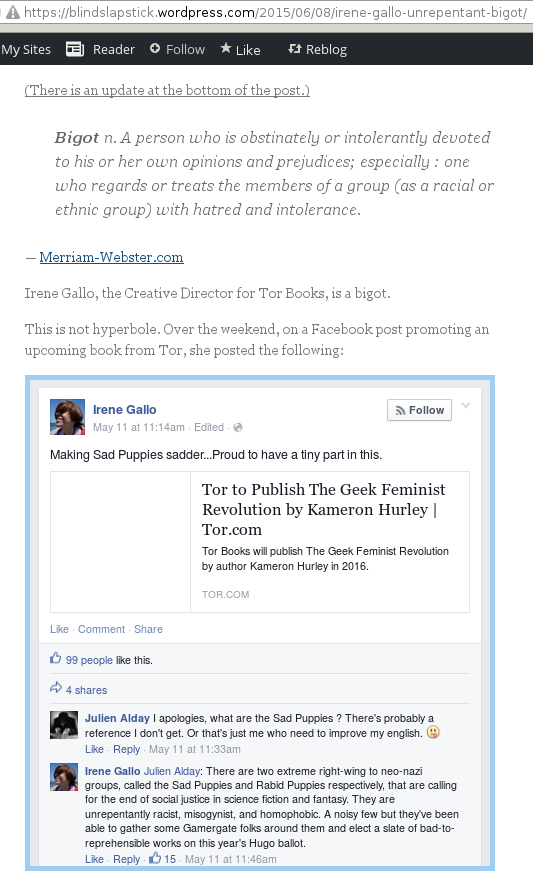
When you are promoting the product of your company, you are representing your company. Hitch along with it sneering in the main body of that post? You’re using your company’s name to give your words weight, whether or not that was what you intended. When someone asks you a question, and you respond in such a libellous, career-destroying manner, including authors in your statement – not by name, but by association – that your company publishes, you are indicating that this is the company point of view.
The thing is, honestly, such is what is considered acceptable – and frankly, you’re showing Larry is right again – from the other side, as indicated by the dismay by the anti-Puppies by Tom Doherty’s addressing the outrage from out side. They toss those labels at us because they consider us the enemy and must be destroyed.
Proving Larry right again and again and again.
The thing is, they toss those labels blindly, caring only for the destruction such words a capable of. So all-consuming is their hatred, that they include people like myself as ‘hateful white cis-men’ – I’m Filipino, female, and in an interracial marriage – and label people like Peter Grant to be the very thing that heroes like Peter have fought: White supremacists, Nazis.
Mr. Doherty, I spent eighteen years working with the victims of racial and tribal violence in South Africa, trying to overturn the vicious and racist policies of apartheid. The white government sought to rule by diktat, and the so-called ‘liberation movements’ who opposed it sought to render white rule impossible through terror. Groups such as ours that sought to bring relief and new hope to areas of conflict were targeted by both sides. We paid a heavy price for our beliefs. Twenty-seven of us died during those years, and more have died since. I’ve written here from time to time about some aspects of our experiences. If you’d like to know more, try this article, or this one. As for my attitude towards racism, try this article for a start.
Given that background, you’ll understand that to be told by Ms. Gallo that, as a supporter of the Sad Puppy campaign, I’m “unrepentantly racist”, is utterly unacceptable to me. Furthermore, I’ve fought (and I mean exchanged gunfire with) real neo-Nazis who sought to impose Nazi-like ideals of racial purity on a country at war with itself. Thus, to be told that I’m a member of an “extreme right-wing to neo-nazi group” is equally unacceptable. I could go on cherry-picking individual clauses out of Ms. Gallo’s statements, but why bother? I think you can understand why I exploded with anger when I read it. She has no idea about those realities. I do. I will bear their scars, mental, spiritual and physical, until the day I die.
I strongly, strongly advise you to read his post. The links in that quote that should, no must be read.
This is why I prefaced this post with a history of who I am, and a rather summarized description of my experiences. I have faced real racism, real discrimination. I have stood OPENLY in support of the Jews, of Israel, for which I have been stalked by someone on the side of the Antis FOR NEARLY SEVEN YEARS AND RECEIVED THREATS AGAINST MY CHILDREN FOR.
Peter Grant has fought against it.
Brad Torgersen goes to fight ISIS / DAESH – against REAL terrorists, REAL religiously motivated hatred, REAL rape culture, REAL KILLINGS OF GAYS.
You who sling mud at us, who question our honor our integrity, our hardships and experiences are doing so FOR THE PETTY REASON OF AN AWARD FOR FICTION.
With Irene Gallo’s original response to the protests of her words, and her subsequent non-apology, it is clear she is unrepentant in her contempt, in her hatred.
The difference between her and my father is, she is ‘sorry’ that ‘we were hurt by her calling us Nazis’, not that she is sorry at all ‘for calling us Nazis.’
My father apologized for his words, for calling the then actions of the Israeli Immigration Police as Nazi-like.
Irene Gallo and her like are not building, they are destroying. They are discriminating against merit, and favoring things extant to merits.
I frankly feel bad for Tom Doherty. He has employees who are more interested in their own agendas and their own ideology, than they are interested in keeping the business of the customers who do not share that ideology, or being welcoming towards authors who do not share that ideology. I do not know him, but I’ve heard about him, for the large part, good. I do not remember bad things said about him – and I heard about these good things from Larry Correia, John C. Wright, Sarah A. Hoyt, and others I may have forgotten. It is clear he treasures what he has built up.
An actual apology, instead of a sulky ‘I’m sorry you’re pissed off by what I said,’ would have been good. Perhaps probation. It depends on what punishments are deemed fit by the head company (Macmillan in this case) – as noted by other people already, the human resources departments of other companies would have already fired her for her unprofessional conduct.
Personally, I have no wish that their words ever be silenced. Let them speak, let them scream. Let everyone know what they think. Let them show the world how they react to disagreement.
Judge them by their words, their actions, revealing their character.
The people Tom Doherty has under him stand on the house he has built and throw rocks and jeer at half of their audience, and have openly reviled some of their authors, and openly reviled authors of other houses, regardless of their true beliefs.
But that is not important to them. That is why Brad came up with the term CHORFs – it was to distinguish the easily, perpetually outraged from those who lean simply left or disagree with us, like Eric Flint, who is on record as disagreeing what we Puppies are trying to do / how we did it, but speaks in our defence because such shrieking hatred is flat out unacceptable.
For all the accusations that they are flinging our way for ‘destroying the Hugos’ they really need to look at the behaviour they are displaying.
When it is gone, they will find something else to destroy in their attempts in recreating the Great Leap Forward in whatever genre or part of society they are in.
I would like to thank my mother, Maria Caridad Modena, for proofreading and checking my essay, as she used to do for my father’s articles and editorials.
Thank you to Eric Rasmusen for letting me know of a typo!

